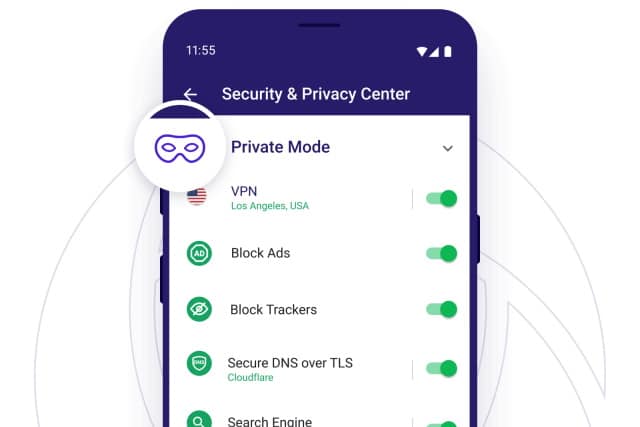
Hundreds of thousands of stolen Zoom accounts for sale on hacker forums for next to nothing
Problems for Zoom and users of the videoconferencing software seem just about unending. Following on from the revelation that a number of account credentials were available on the dark web, a new report shows that in fact there are credentials for hundreds of thousands of accounts available on hacking forums.
In all, over half a million account details have been found available -- some sold for fractions of a penny, and others made available completely free of charge.

Apple is the brand most imitated in phishing attacks
A new study from Check Point Research highlights the brands which are most frequently imitated by criminals in attempts to steal individuals' personal information or payment credentials.
The Brand Phishing Report for the first quarter of this year shows Apple was the brand most frequently imitated, up from seventh place in the final quarter of 2019.

Zoom will soon let some users choose which countries their data is routed through
As part of its continuing efforts to regain trust following a series of privacy and security scandals, Zoom has announced that it is introducing the option for users to choose which countries their data is routed through.
The move comes after concerns were voiced at Zoom's admission that some US calls were being routed through China. The new option will allow users to opt in or out of specific data center regions; unfortunately, this feature will not be made available to everyone.

Cloudflare ditches Google's reCAPTCHA because of privacy concerns and costs
Cloudflare has moved away from using Google's reCAPTCHA, opting instead for the independent hCaptcha bot detector.
The company explains the reasons behind the change, citing not only the fact that Google would now like to charge Cloudflare for what used to be a free service, but also the privacy concerns that stem from anything to do with Google.

Zoom is taking steps to improve privacy and security, and to prevent Zoombombing
The various security and privacy issues that have plagued Zoom in recent weeks have not only caused users to look at the video conferencing software differently, but also forced the company to take a long, hard look at itself.
Having already apologized for the numerous issues people have experienced, as well as making changes to the way the service works, Zoom has now also taken steps to prevent users from being Zoombombed. The change is a relatively minor one in the scheme of things, but it's an important one.

Fewer than half of companies operate securely in the cloud
A new survey finds that 85 percent of companies believe embracing the public cloud is critical to fuel innovation. But of those who have already adopted public cloud, only 40 percent have in place an approach to managing cloud and container security.
The study by DivvyCloud finds only 58 percent say their organization has clear guidelines and policies in place for developers building applications and operating in the public cloud. Of those, 25 percent say these policies are not enforced, while 17 percent confirm their organization lacks clear guidelines entirely.

Google bans Zoom and the US senate warns against its use
Once a specialist tool, then the darling of the video conferencing world, Zoom's fall from grace has been fairly spectacular. A series of privacy and security issues have put off numerous users, and led to some institutions instigating a ban on the software.
Google has now followed the lead of schools across the US, banning employees from using Zoom because of concerns about security. Senators in the US have also been warned against using the service.

Zoom teams up with security experts, including Facebook's former Chief Security Officer, to address privacy and safety
The privacy and security scandals that have blighted Zoom have already caused some users to look for alternatives, but the company seems serious about trying to address the issues that have sparked concern.
Having already issued an apology to users, Zoom CEO Eric S Yuan has now revealed that his company is collaborating with numerous big-name CISOs (chief information security officers) to ensure the implementation of security and privacy best practices. He also says that Facebook's former Chief Security Officer, Alex Stamos, is joining the company as a security advisor.

Avast Secure Browser lands on Android complete with a built-in VPN
Avast has launched an Android version of its security- and privacy-focused web browser. Avast Secure Browser features various DNS options and a built-in VPN to calm the fears of those concerned about their privacy.
This is not all the browser has to offer. There's also anti-tracking technology and complete data encryption to take care of the security side of things as well.

Stolen Zoom account credentials are freely available on the dark web
Loved, hated, trusted and feared in just about equal measure, Zoom has been all but unavoidable in recent weeks. Following on from a combination of privacy and security scandals, credentials for numerous Zoom account have been found on the dark web.
The credentials were hardly hidden -- aside from being on the dark web. Details were shared on a popular forum, including the email address, password, meeting ID, host key and host name associated with compromised accounts.

Microsoft announces IPE, a Linux Security Module that adds new code integrity features to the kernel
Microsoft's embracing of Linux continues, and the company's latest project sees it trying to improve the security and integrity of systems. The Windows-maker has launched a Linux Security Module (LSM) called Integrity Policy Enforcement (IPE).
The kernel add-on gives administrators the option of configuring policies that can enforce integrity requirements across an entire system. It is possible to create a list of binaries that are permitted to run, and specify attributes that need to be checked before execution is allowed.

The challenges of securing a remote workforce [Q&A]
The current coronavirus crisis has led to a massive surge in numbers of people working from home. But that raises a whole raft of problems in keeping people and data secure.
We spoke to Nitin Agale, SVP, product and strategy at security automation specialist Securonix, to find out more about the challenges and how organizations can address them.
New email service aims to give users full control of their inboxes
Email is now the primary form of communication for most people, but a side effect of that is it's also become the primary means of distributing malware and other threats as well as becoming an advertising medium.
Edison Software has announced that this summer it's launching OnMail, which it claims is the first mail service to provide users with full control over what can enter their inboxes.

Taiwanese government bans agencies from using Zoom because of security concerns
Following on from numerous schools across America implementing bans on the use of Zoom, the government of Taiwan is forbidding agencies from using the video conferencing service because of concerns about security.
The Taiwanese government issued a directive today ordering agencies to "step up video conferencing security". The order states that should video conferencing be necessary, the software used should not have "security or privacy concerns". Zoom is singled out as a tool that is unsuitable.

Chinese APTs have been targeting Linux servers for almost a decade
Five related Advanced Persistent Threat (APT) groups operating in the interest of the Chinese government have systematically targeted Linux servers, Windows systems and mobile devices running Android while remaining undetected for nearly a decade.
A new report from BlackBerry looks at how these threats have been part of pervasive economic espionage operations targeting intellectual property.
